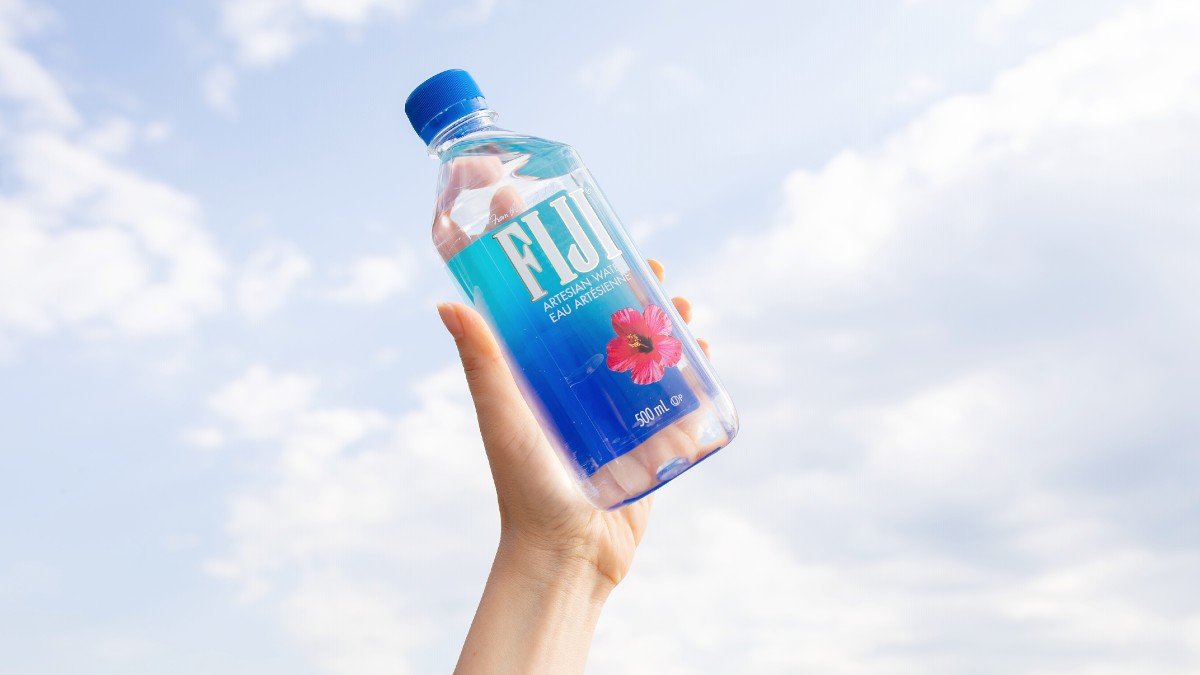Can You Recycle Fiji Water Bottles?

In this era of increased health consciousness, more people are moving away from tap water. Some are even consuming artesian water; a type of water that flows onto the land’s surface naturally and is believed to contain health benefits. Fiji water bottles are one popular brand that collects, packages, and sells this kind of water is FIJI.
Founded in 1996, this company has been collecting water from an ancient artesian aquifer in Fiji, packaging it in bottles, and sharing it with the rest of the world. But are the bottles this company uses recyclable? Well, that’s what we’re going to talk about in this post.
What materials are FIJI Water bottles made out of?
FIJI water bottles are made of a type of plastic called polyethylene terephthalate (PET). Commonly referred to as #1 plastic, it’s also used to make the caps of FIJI water bottles.
However, the labels on these bottles are made of a lower grade of plastic.
Can you recycle FIJI Water bottles?
Yes, you can recycle FIJI bottles. After all, PET is one of the most recyclable types of plastic. It can be recycled up to 10 times. It’s therefore not surprising that FIJI recently started using 330 ml and 500 ml bottles made of recycled PET.
However, many people still don’t recycle PET bottles because they don’t know how to. Fortunately, most curbside recycling programs accept PET. You just have to rinse your PET bottles before throwing them in the recycling bin.
This will ensure that bugs are not attracted to them and no odors develop. Also, confirm with your local authorities whether you should leave the caps on the bottles.
Some facilities want them removed to ensure that the bottles are empty and so that they don’t damage any recycling machines. Other facilities want them on to keep them from falling off the trucks during transportation to the recycling plant.
Either way, all caps are usually removed after the bottles reach the recycling plant and are sorted according to plastic type. Afterward, the bottles are crushed and then shredded to make flakes.
These flakes are then washed, dried, and melted into pellets. These pellets are what are used to make new plastic products. These products include new bottles, sleeping bags, carpets, and playground equipment.
Are FIJI Water bottles biodegradable?
No, FIJI water bottles aren’t biodegradable. They won’t break down whether you add them to your compost or they end up in a landfill.
Can you reuse plastic FIJI Water bottles?
Yes, you can reuse FIJI water bottles. The FDA has declared PET water bottles safe for single and repeated use. But there have been concerns about antimony leaching into your water if you store your PET bottles in places with high temperatures.
That’s why it’s important to properly store your FIJI water bottles at room temperature away from the sun. Another thing to keep in mind when reusing FIJI bottles is that they and other bottles designed for single use are prone to bacteria growth.
This is a bigger concern than leaching. It commonly occurs around the bottle’s mouth and places where it has cracks. Because of how fast bacteria can grow and spread on these bottles, it may be better to use a reusable water bottle instead of reusing them for drinks.
However, you can comfortably reuse these bottles to make planters and DIY pencil holders.
Are FIJI water bottles environmentally friendly?
While the decision to start using recycled PET to make FIJI water bottles has reduced plastic use, it doesn’t make them environmentally friendly. After all, energy is still consumed in manufacturing recycled bottles.
To make matters worse, the company still uses a lot of energy to process the water, fill it in the bottles, and seal them. Beyond that, transporting the bottles from Fiji to target destinations like the United States usually consumes millions of joules of energy.
To make matters worse, the whole process produces greenhouse gasses and other forms of waste. All things considered, the FIJI brand and its products aren’t environmentally friendly.
However, the company has made some effort to help the community that lives around the water’s source. For instance, it has helped reforest the area and provide clean water there.
Recycle! Recycle! Recycle!
If you regularly drink FIJI water, the easiest and most sustainable thing you can do with the leftover bottles is to recycle them using your curbside recycling program.
This will keep you from adding plastic to landfills and is honestly easier than finding a way to reuse them in your home.
